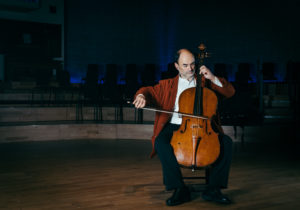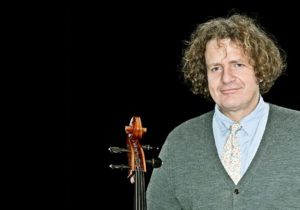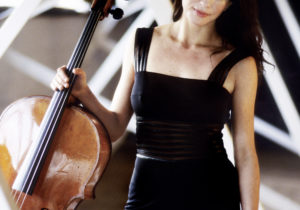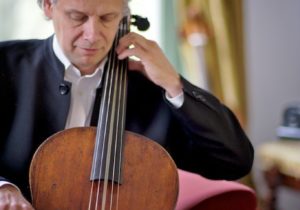Bach: Six Solo Suites
Feature
Pieter Wispelwey
‘The need is strong to imagine these pieces having just been written – in short, new, modern, intriguing music. Music for a single cello but written by a composer with an enormous aptitude for rich, polyphonic Baroque language…
Perhaps he envisaged the lay-out almost immediately: a simple start (in the keys of G, D minor, C, all the cello’s open strings) then gradually leaving the realm of the cello via a complex key, E flat major, in the Fourth Suite, then a ‘scordatura’ Fifth Suite (the top string tuned down a tone), darkening the cello even further, turning it into something aloof and threatening, eventually to abandon the conventional cello by adding a fifth string and writing the unbridled, radiant music of the Sixth Suite, music defying gravity…’ PW
Bach’s Suites for cello have had a curious history. Whoever Bach was writing for at the court of C.then must have been a real or imagined virtuoso: so demanding are these works, it’s been argued they exceed the cello technique of the time and might have been written for the viola da spalla, a large violin held braced against the shoulder. We can’t know who heard them, though writing for cello blossomed during this period, as Christophe Coin will reveal in his programme of Gabrielli (before) and Dall’Abaco (just after), and as demonstrated in the virtuosic duos of Bach’s pupil CF Abel (Parallel Lives).
Bach’s son CPE Bach wrote that his father ‘understood to perfection the possibilities of all stringed instruments. This is evidenced by his solos for the violin and violoncello without bass. One of the greatest violinists told me once that he had seen nothing more perfect for learning to become a good violinist…’ Indeed, for 200 years the Suites were not lost (Schumann even made piano arrangements for them) but published in pedagogical editions, as technical studies. It was in one of these editions that Casals ‘re-discovered’ them in 1890, though years passed before he brought them, triumphantly, before the public.
The creative response from composers was seismic, as we’ll show in the last two Bach Through Time recitals: in 1915 Kod.ly penned his extraordinary Solo Sonata, which absorbed Bach’s polyphonic approach and added a vast range of percussive ideas, transforming the instrument into guitar and cimbalom, and exploiting its stratospheric register. That same year, Reger published his Solo Suites. Later came Cassad.’s Spanish-inflected Solo Suite (1926), Ligeti’s Sonata (1948), Bloch’s First Suite (1956), Veress’s Sonata (1967) and Britten’s Third Suite (1971), which so movingly quotes from the Prelude of Bach’s Suite No. 1. Lastly, Kurt.g’s aphoristic gems (Signs, Games and Messages 1961–2005) inhabit Bach’s world of polyphonic suggestion, now reduced to essential gesture.



